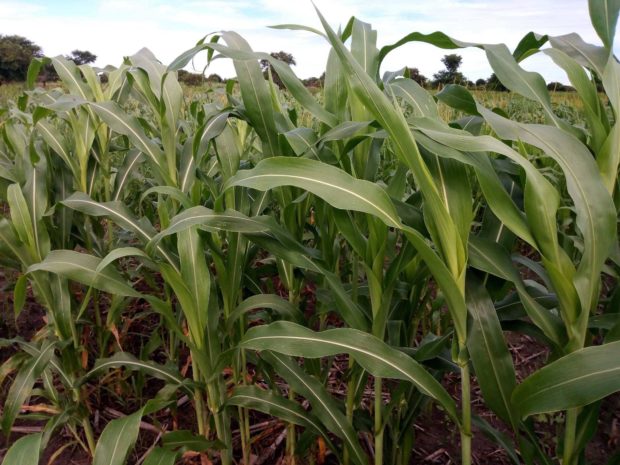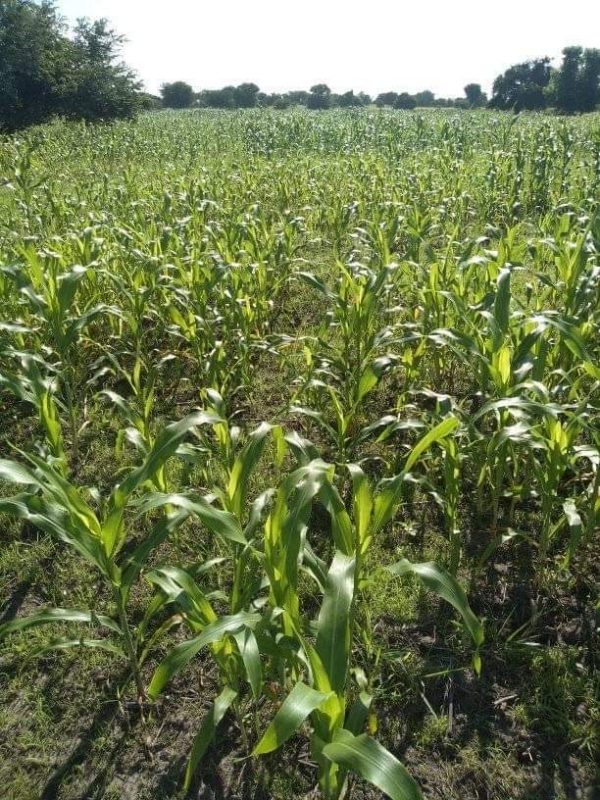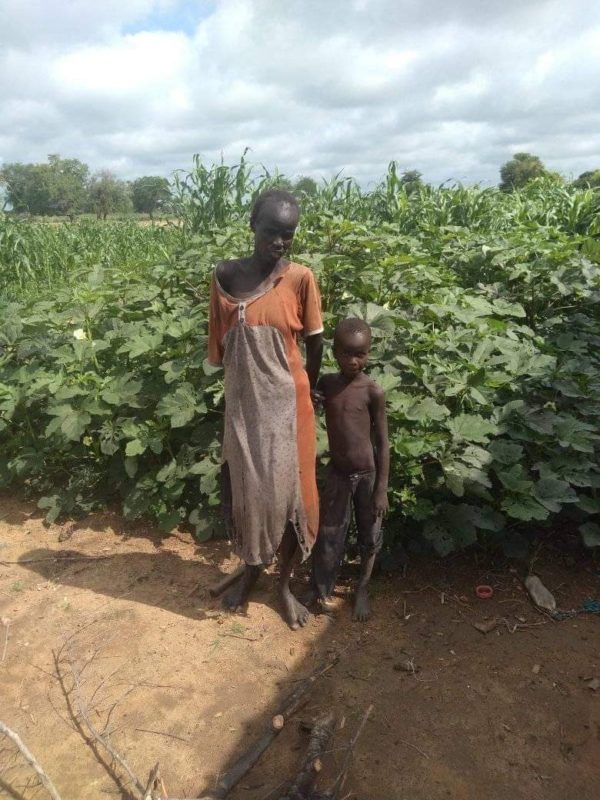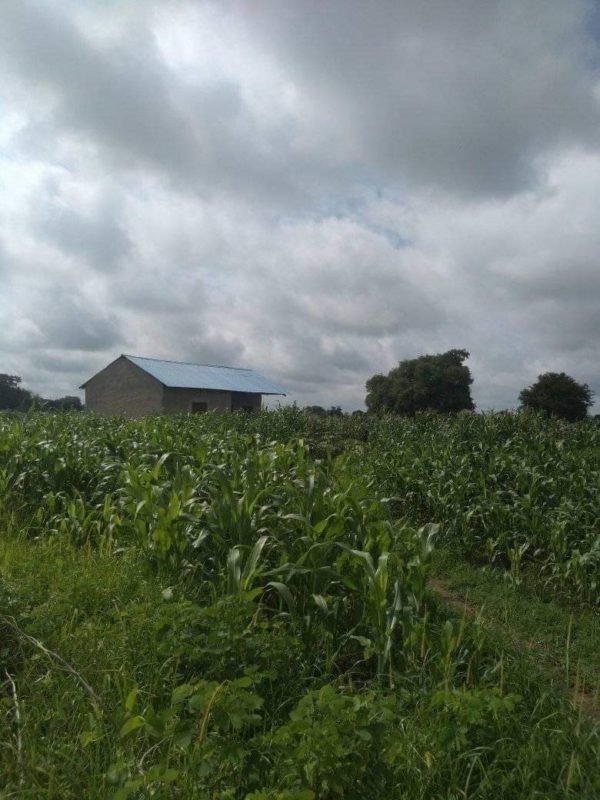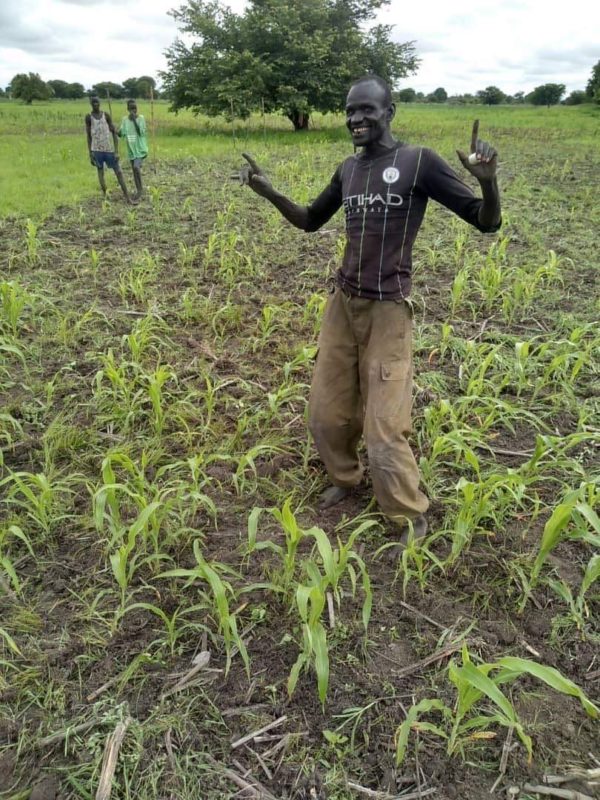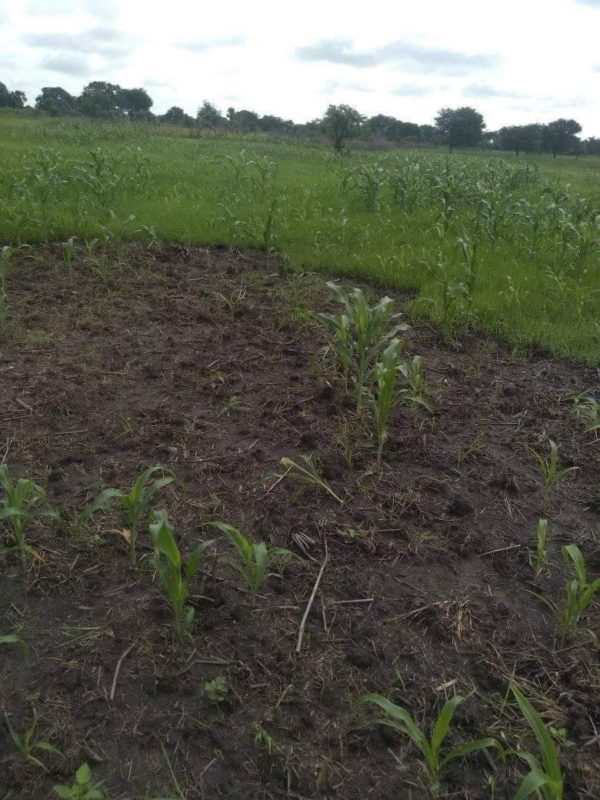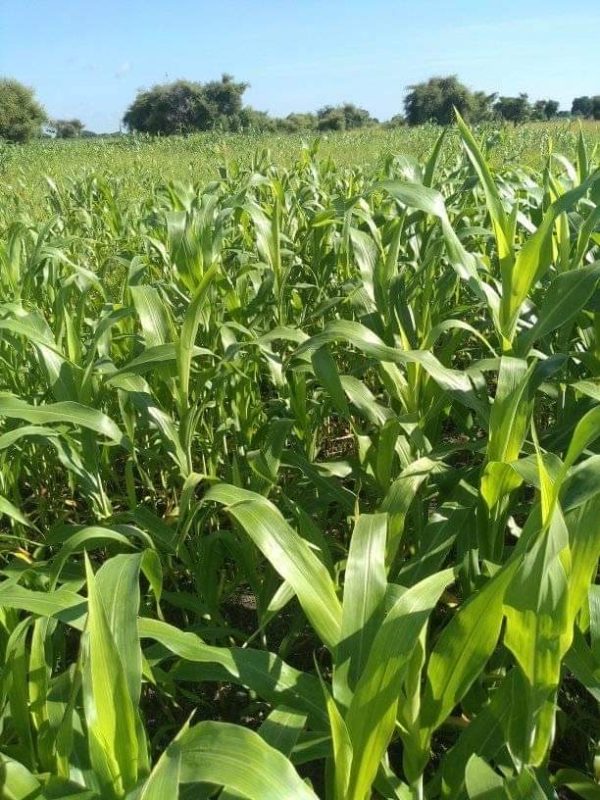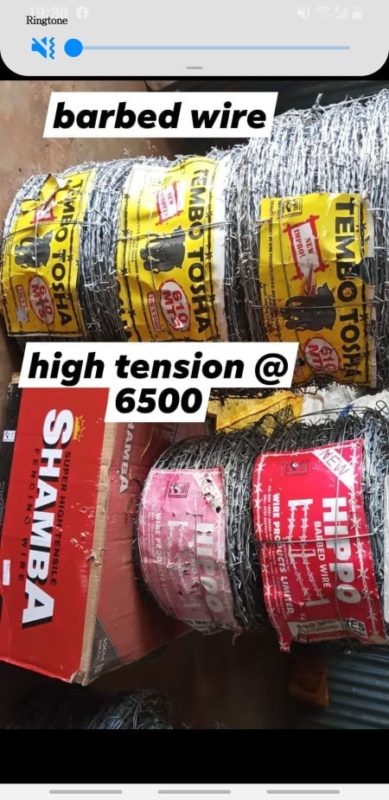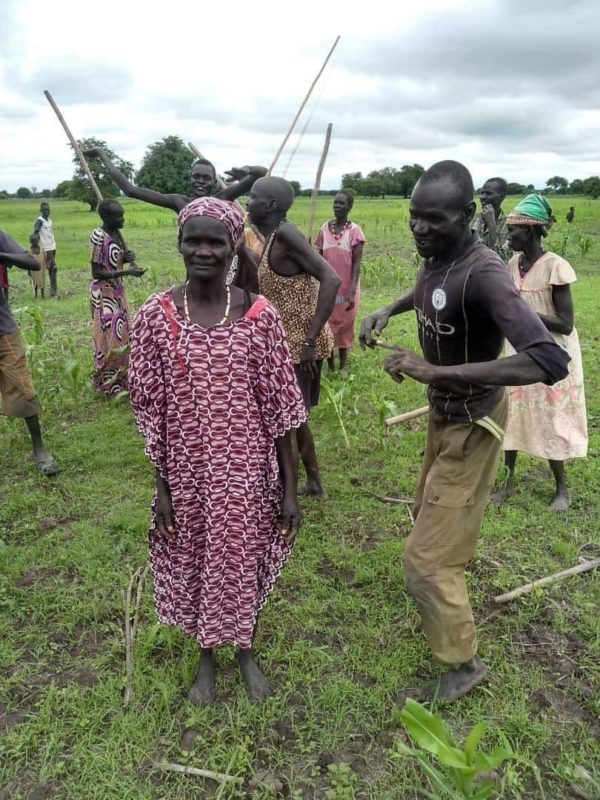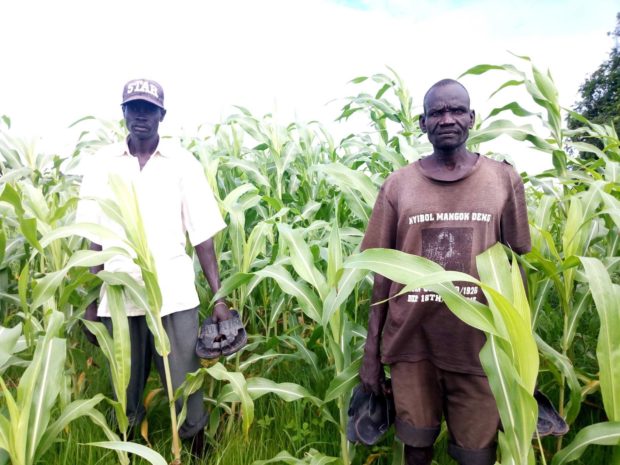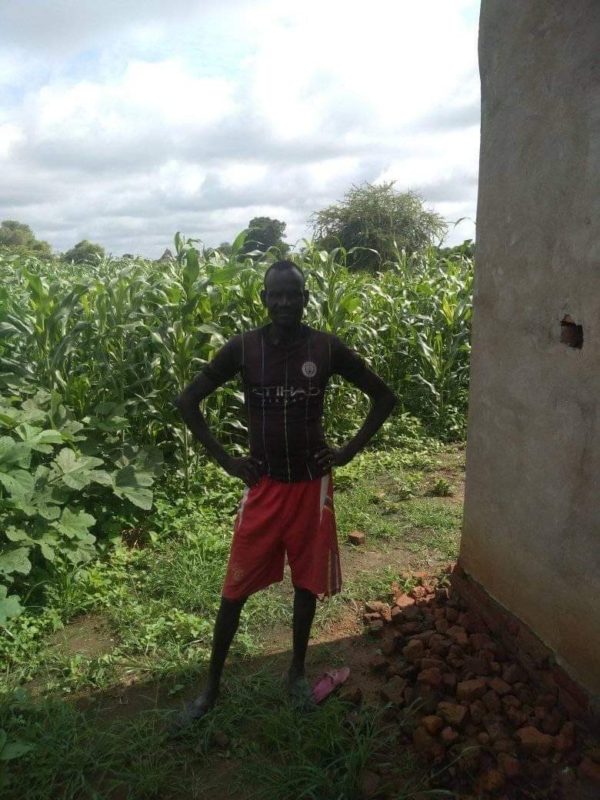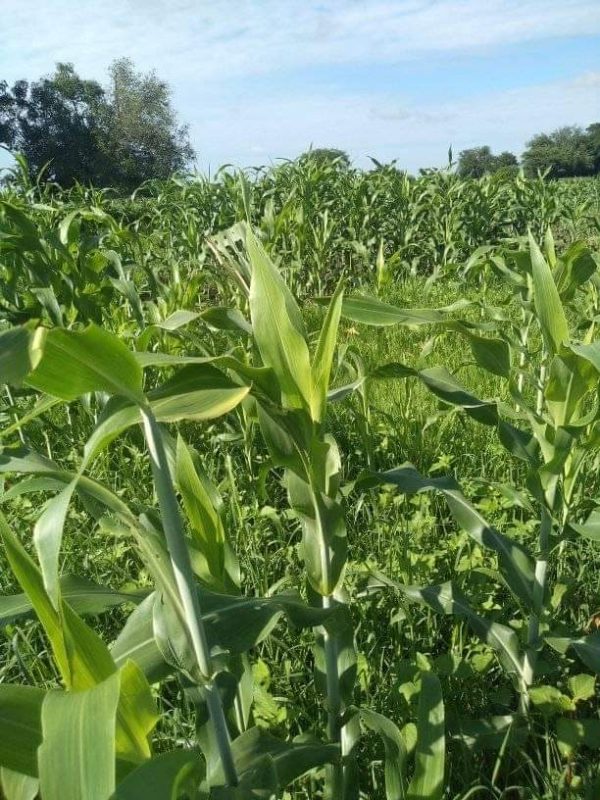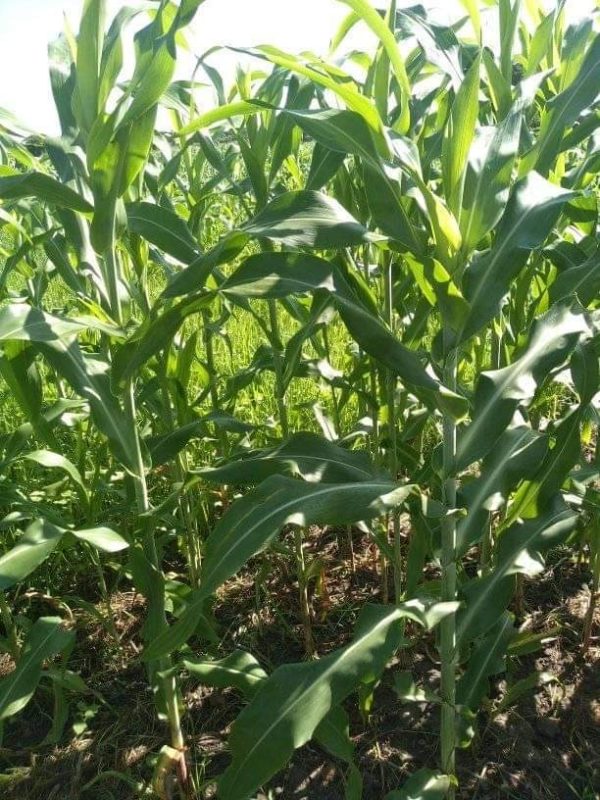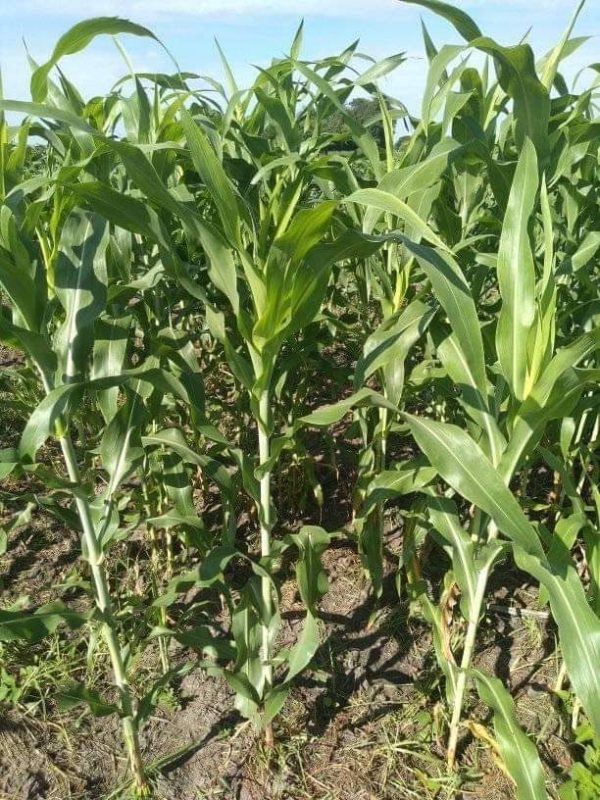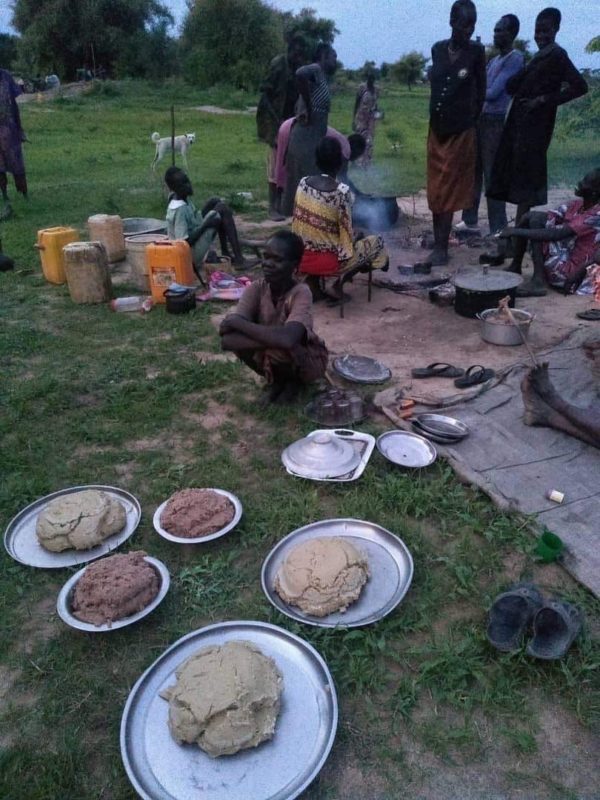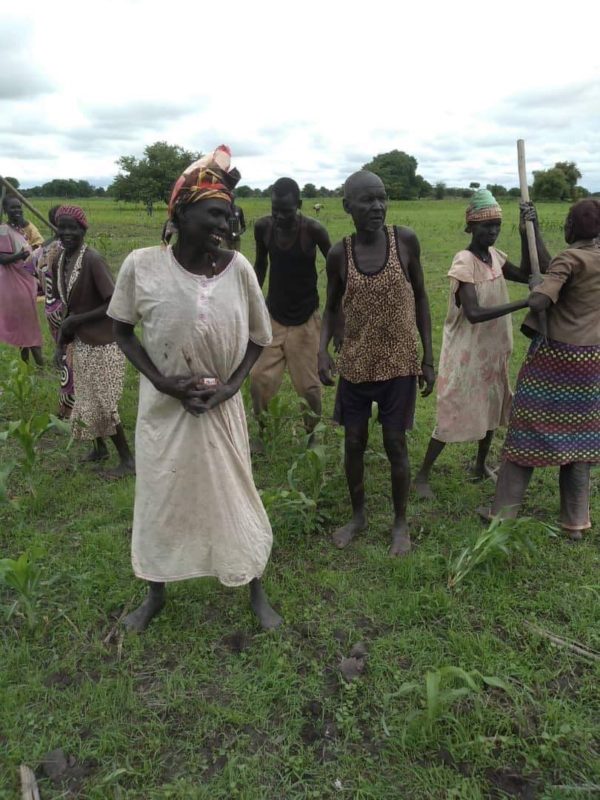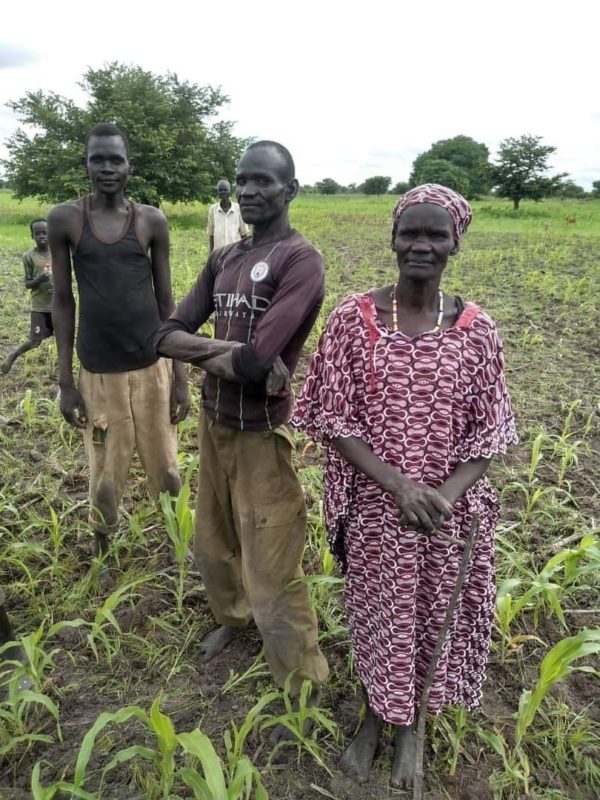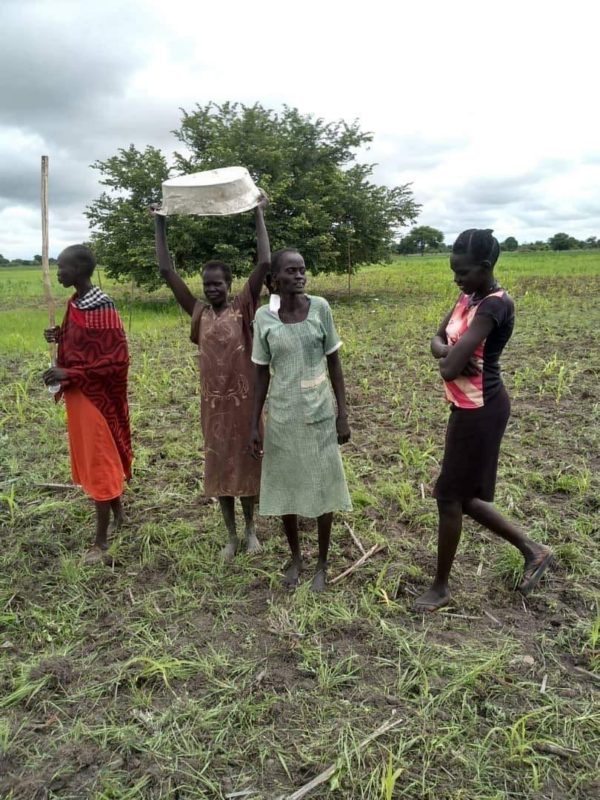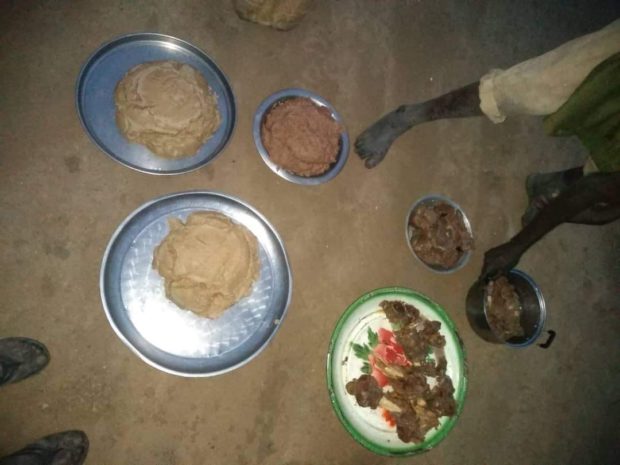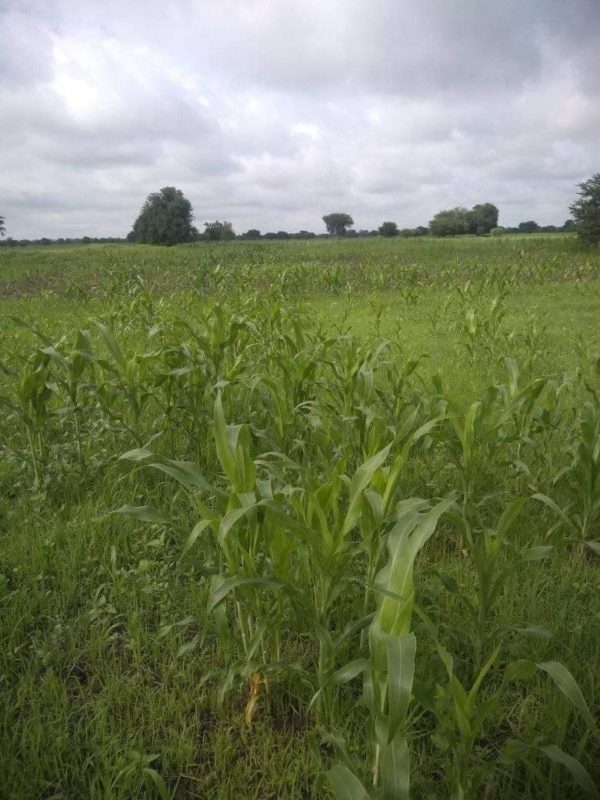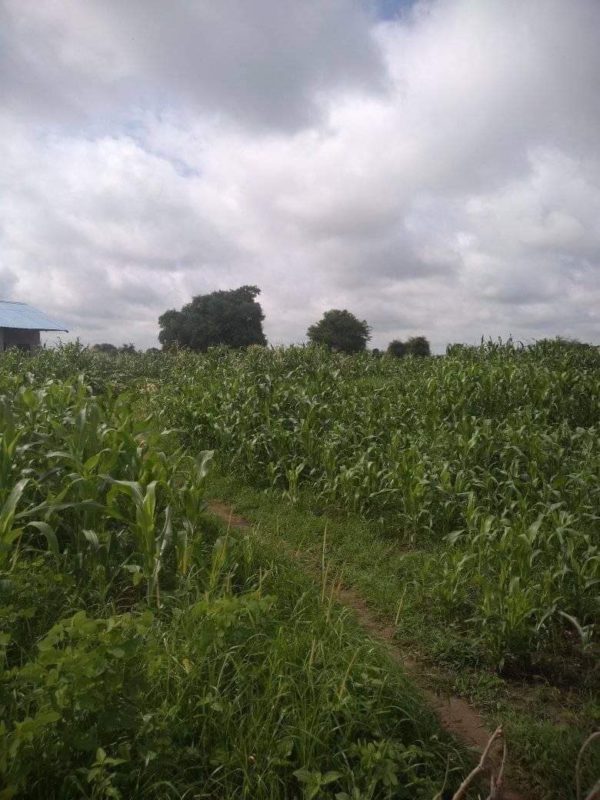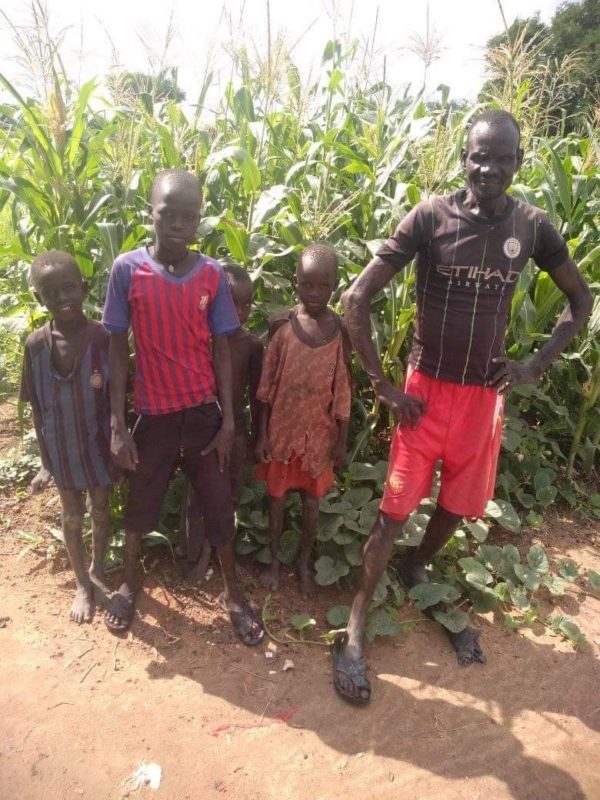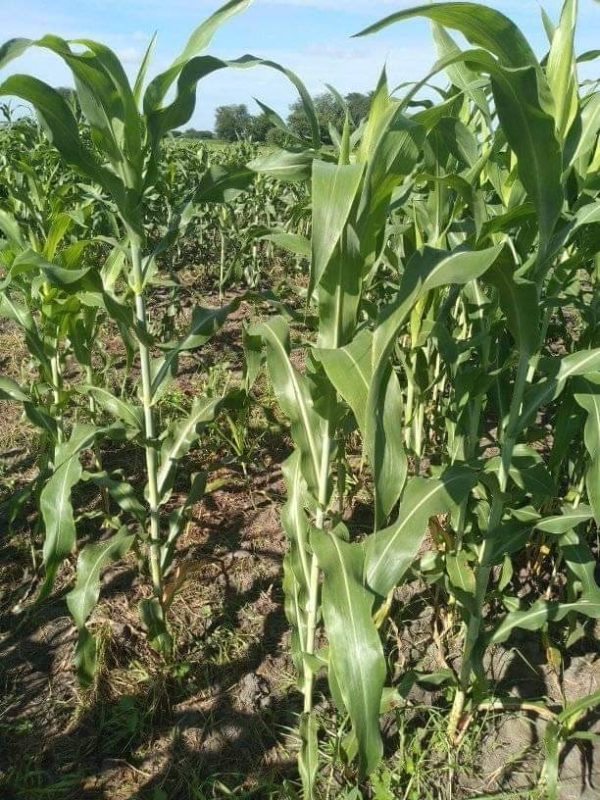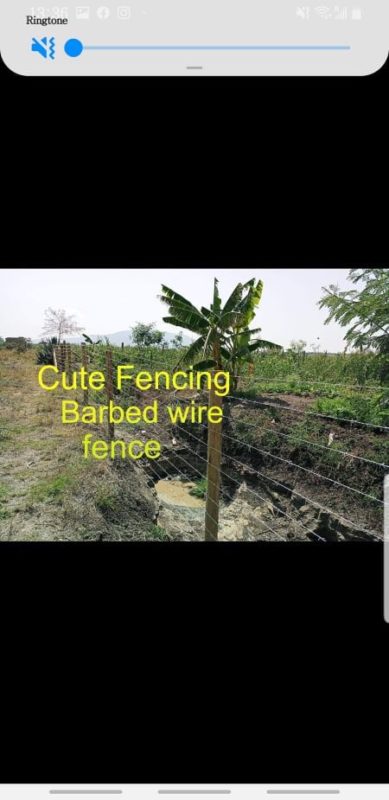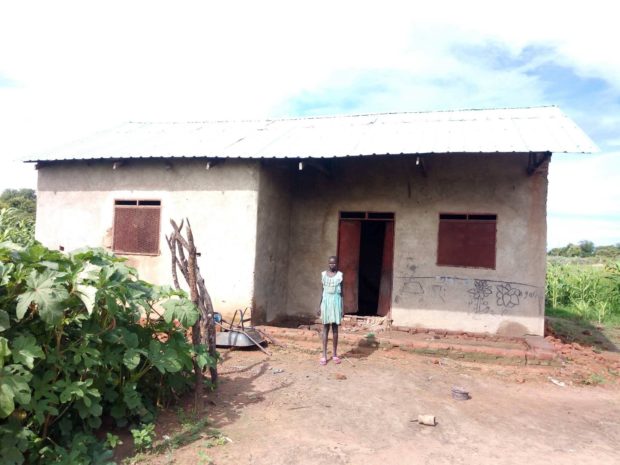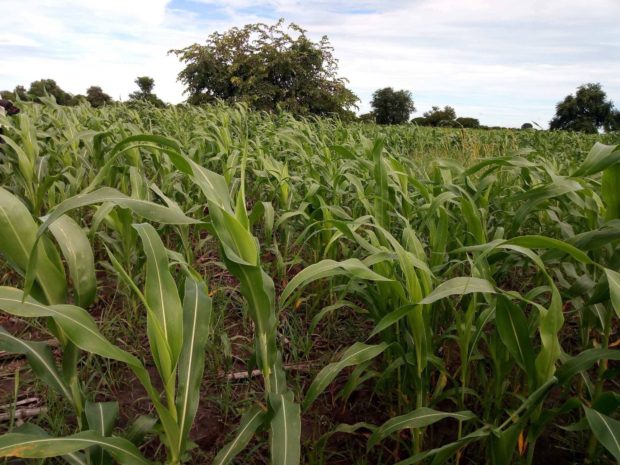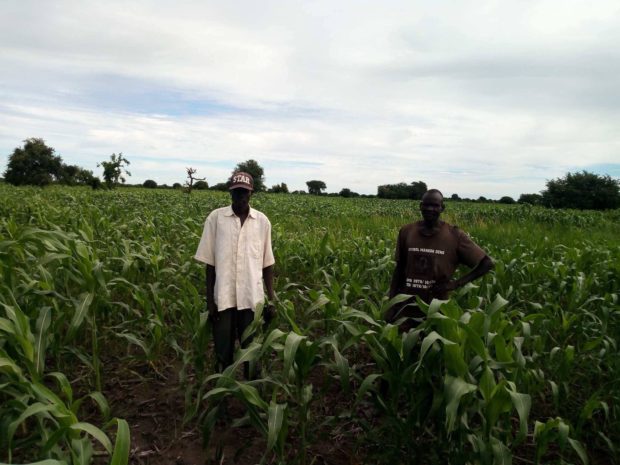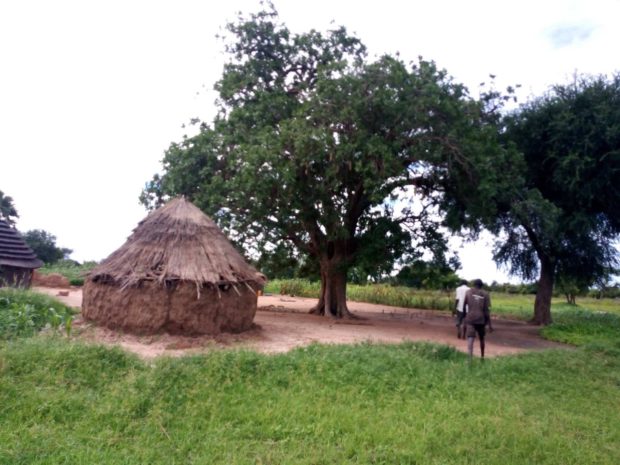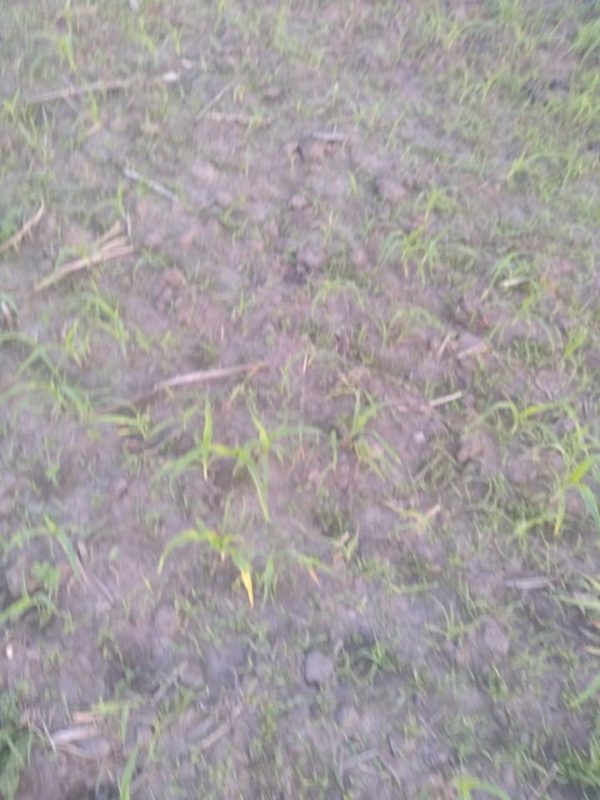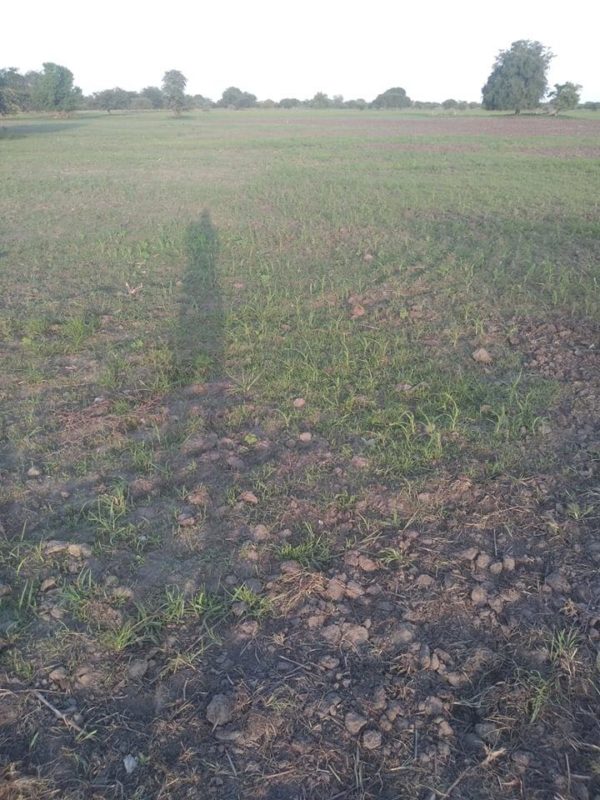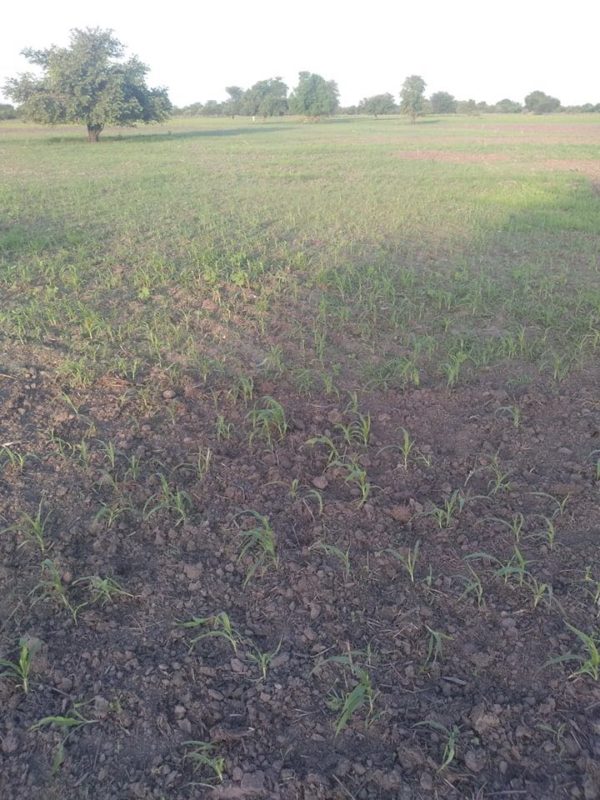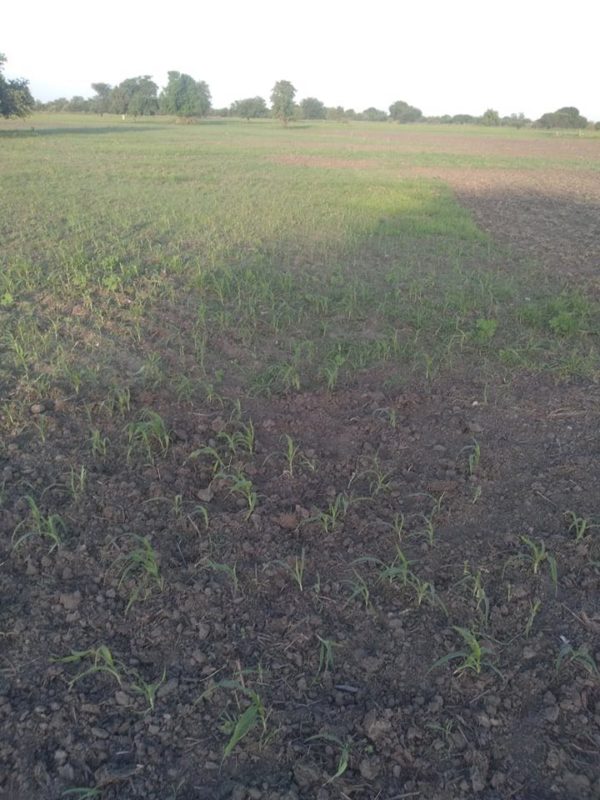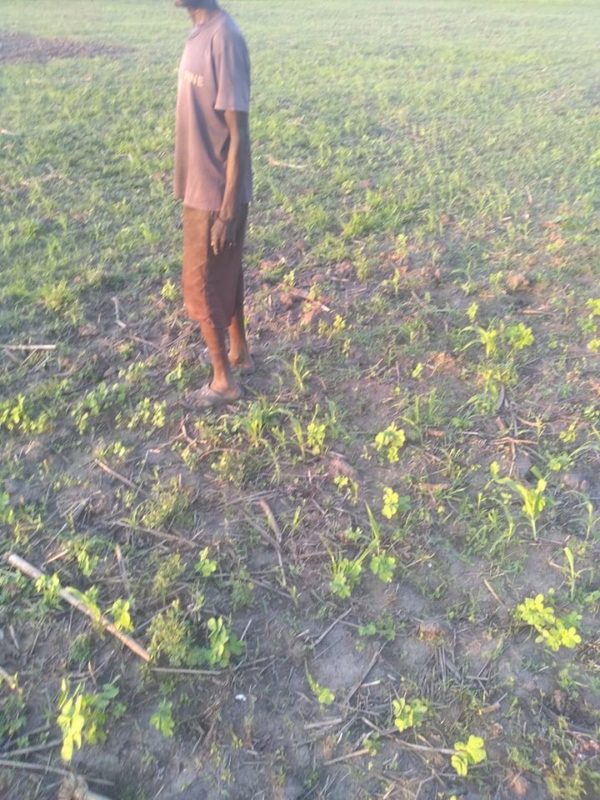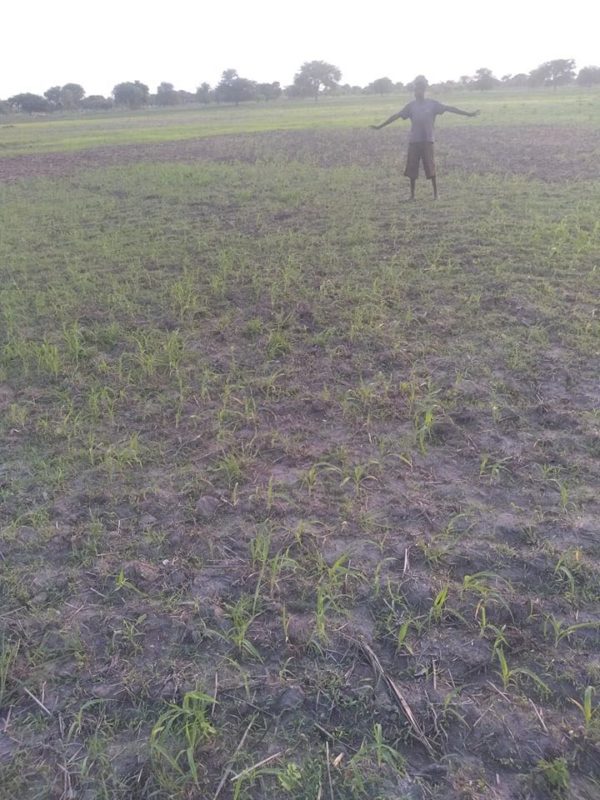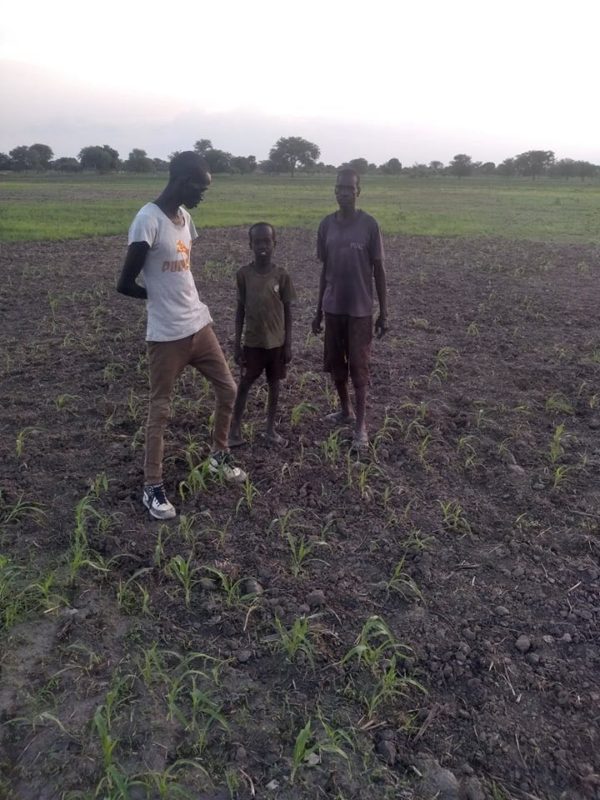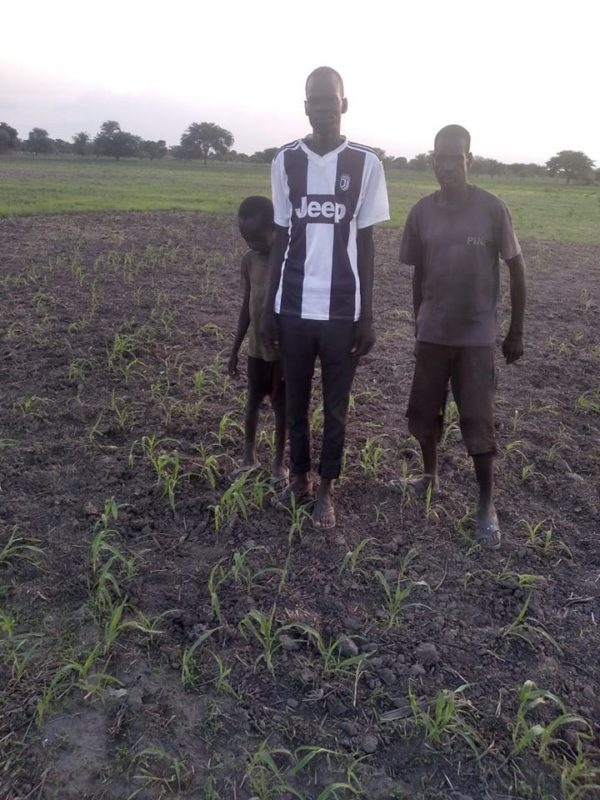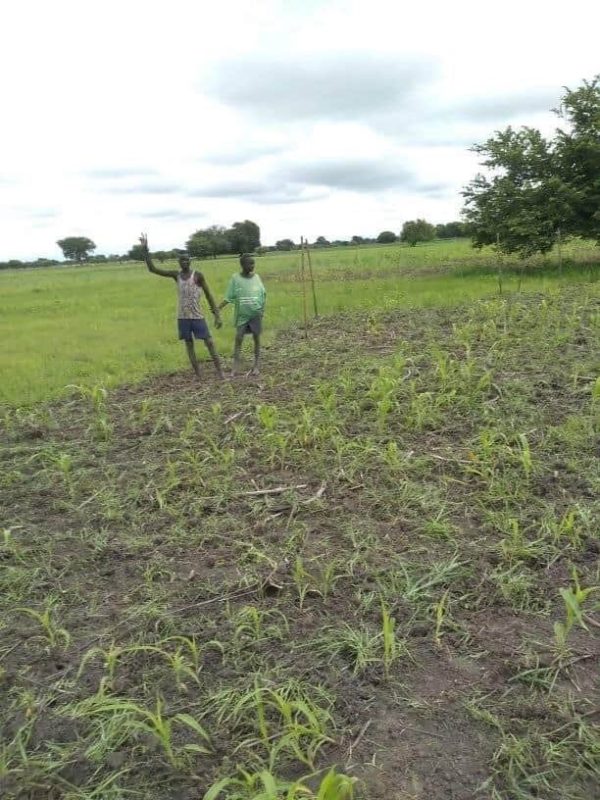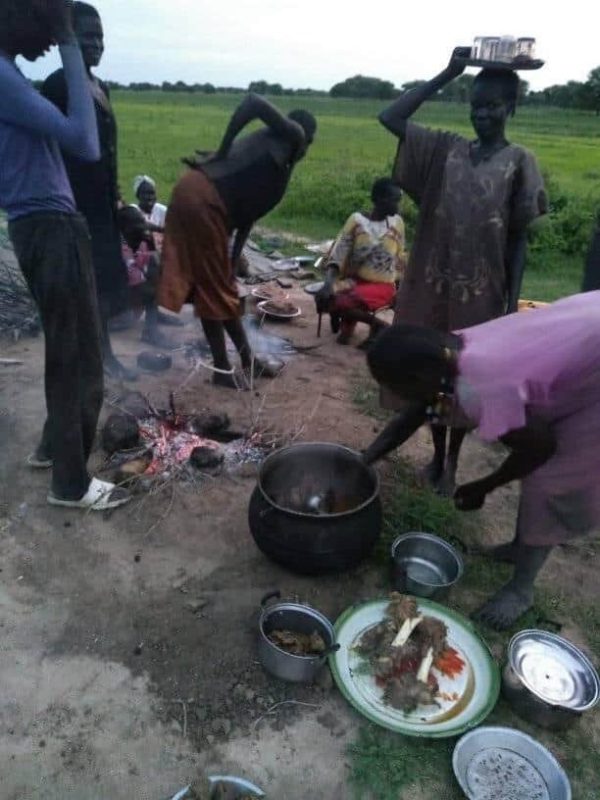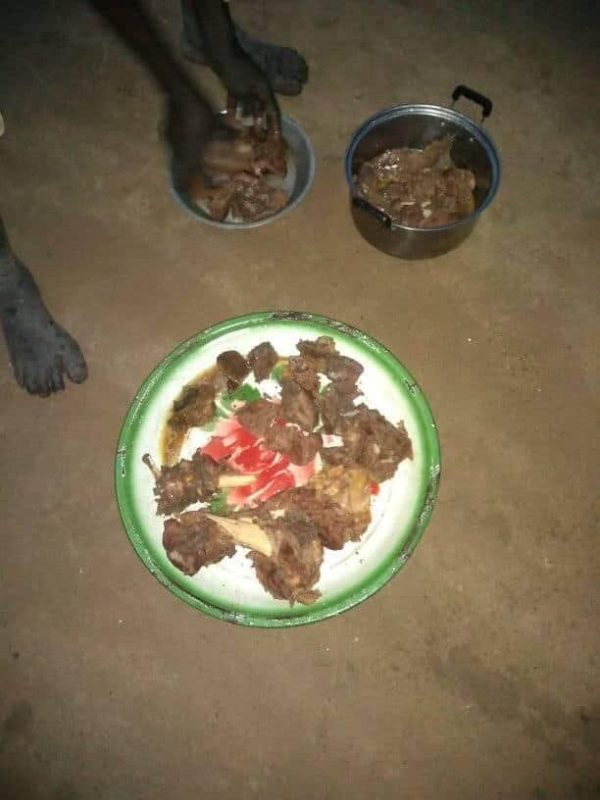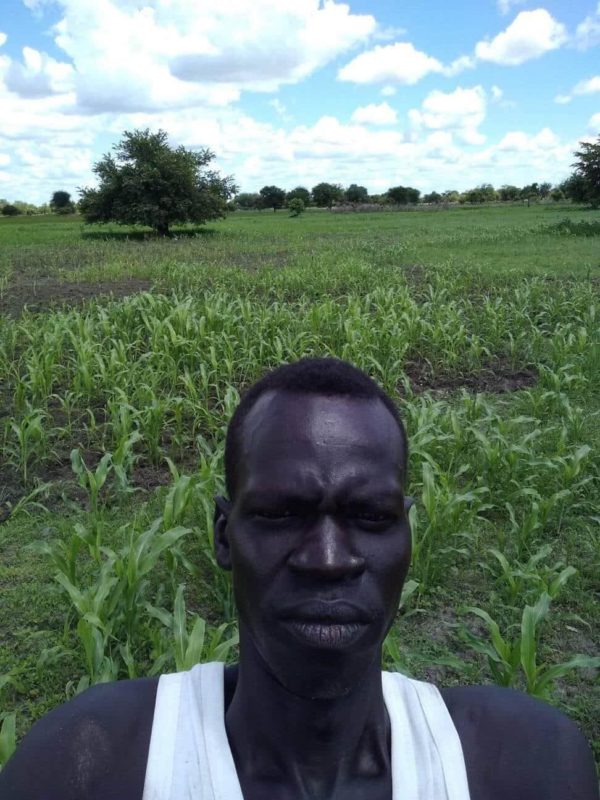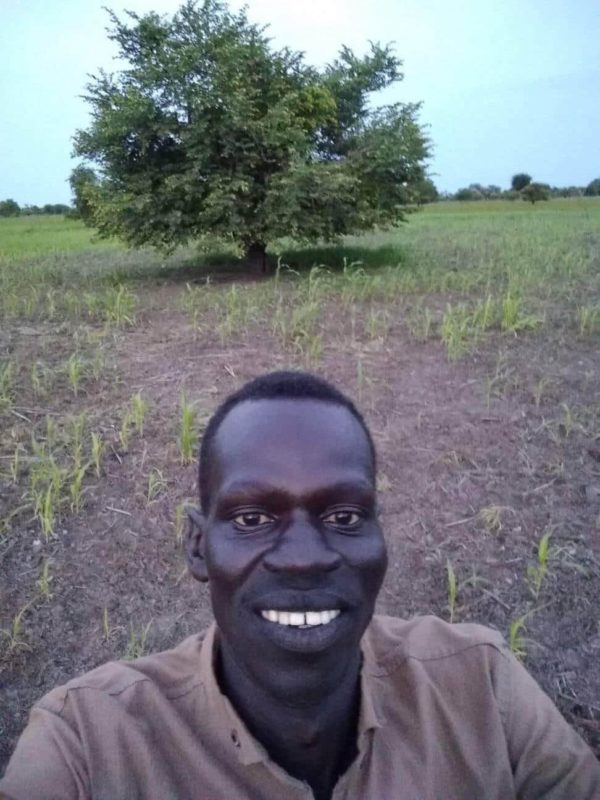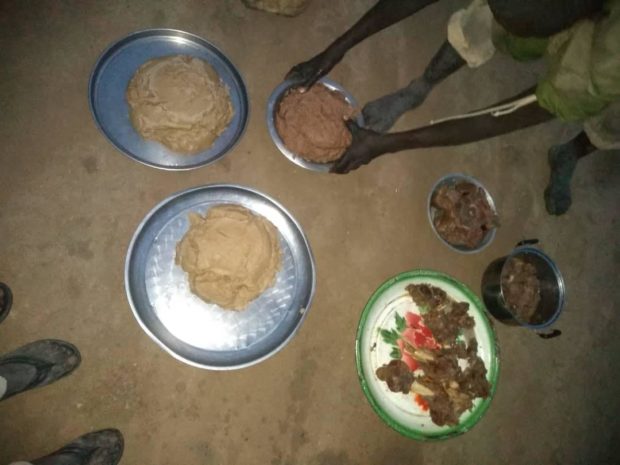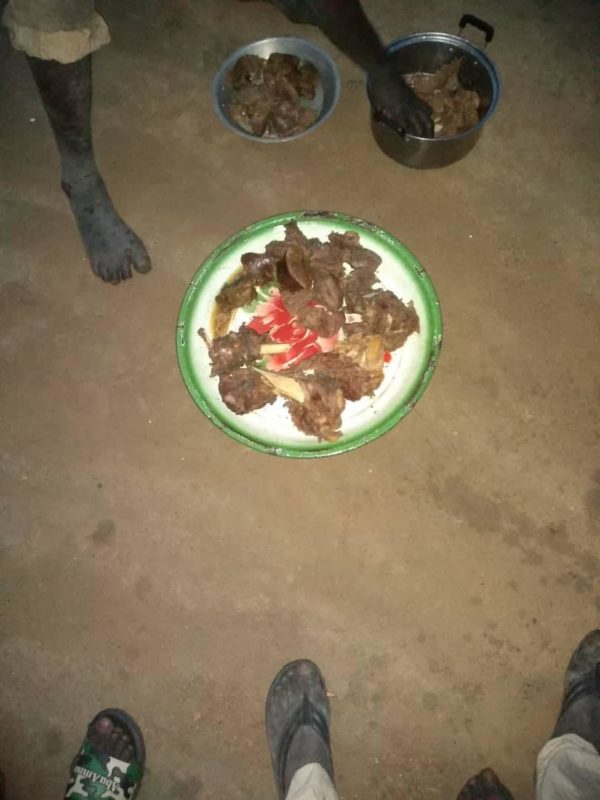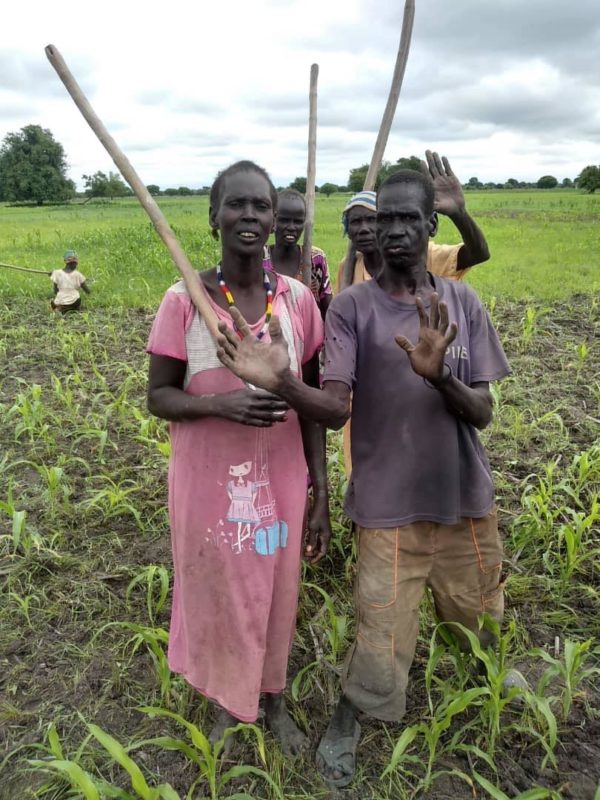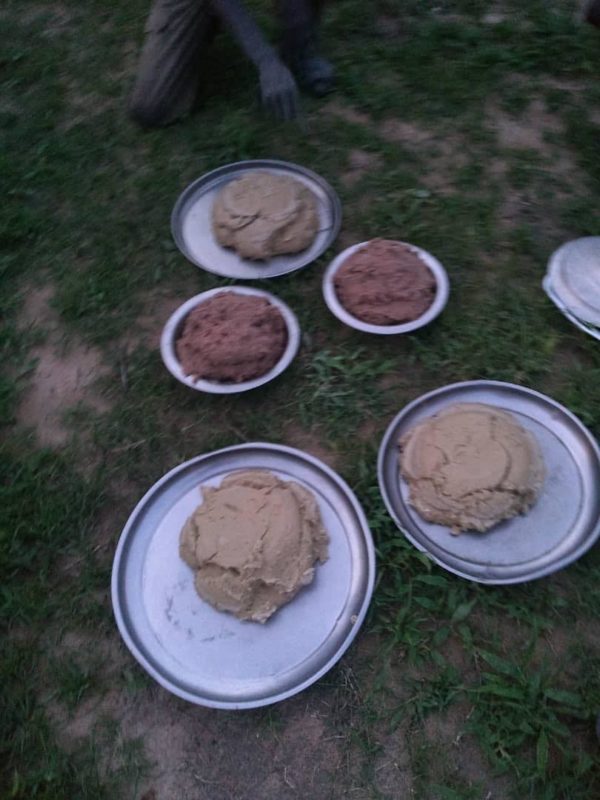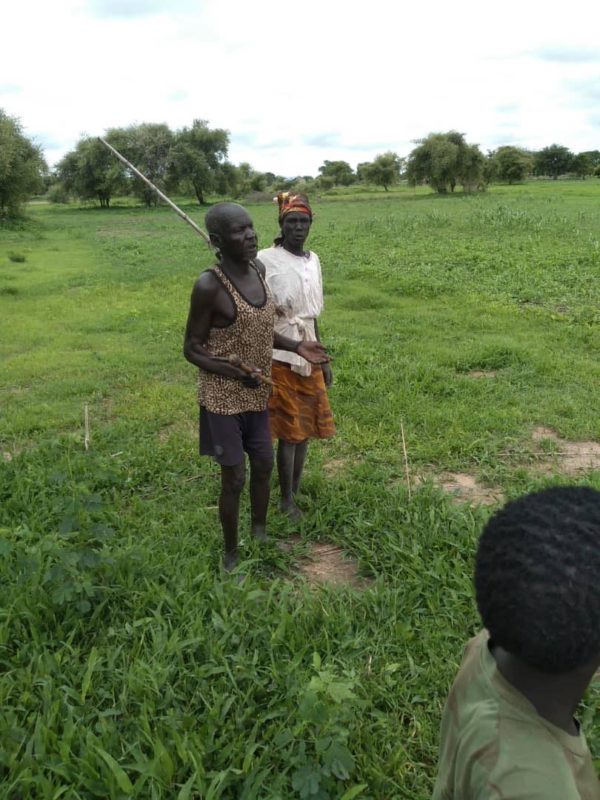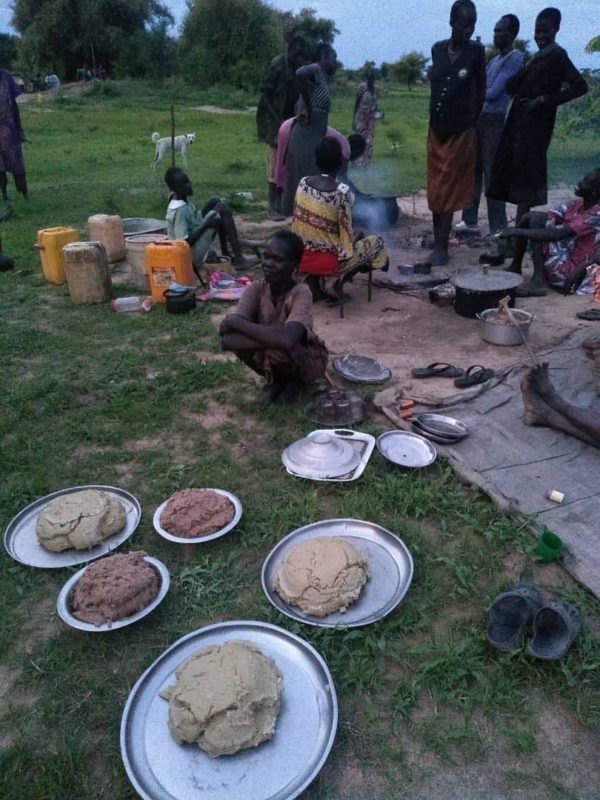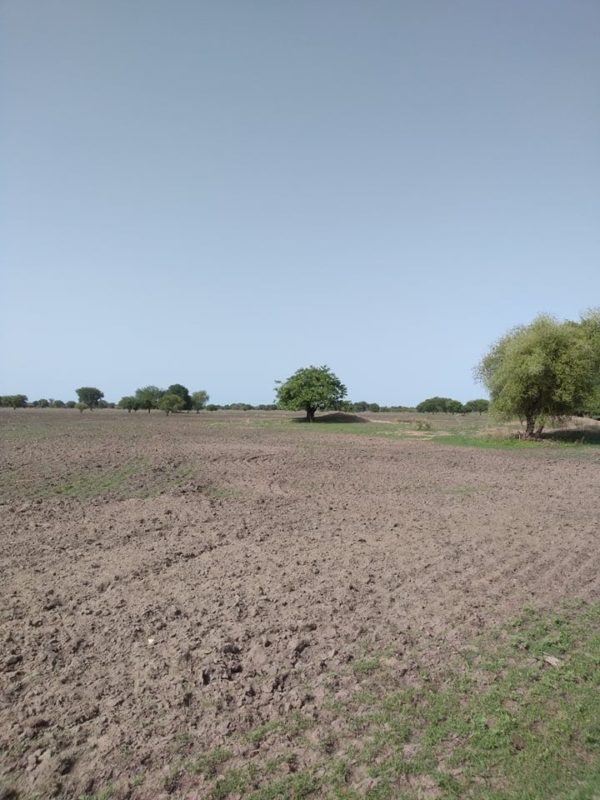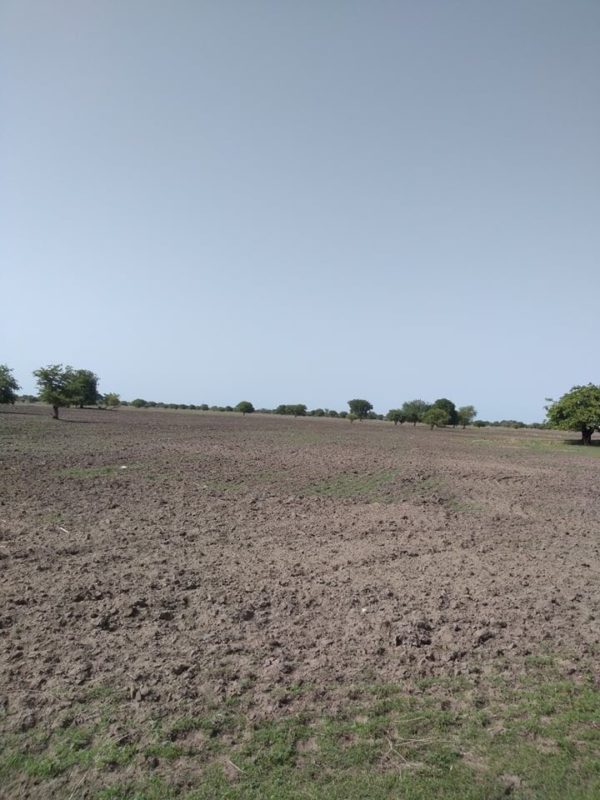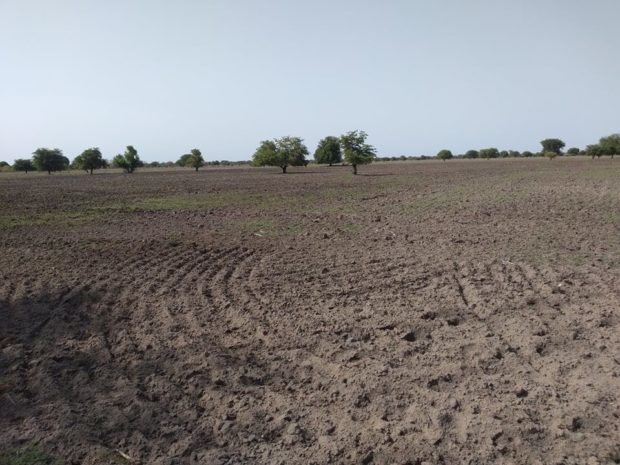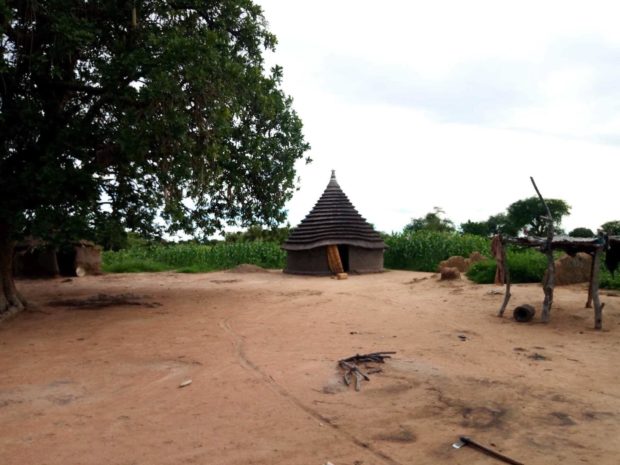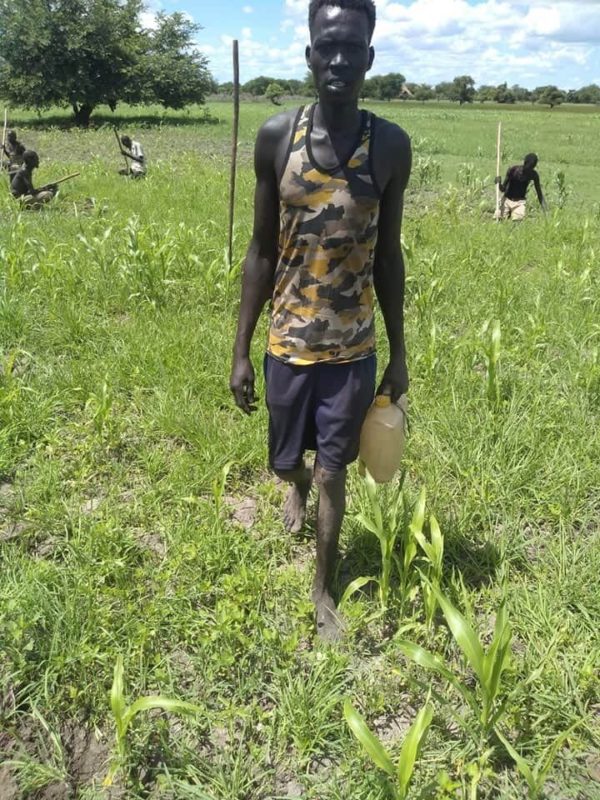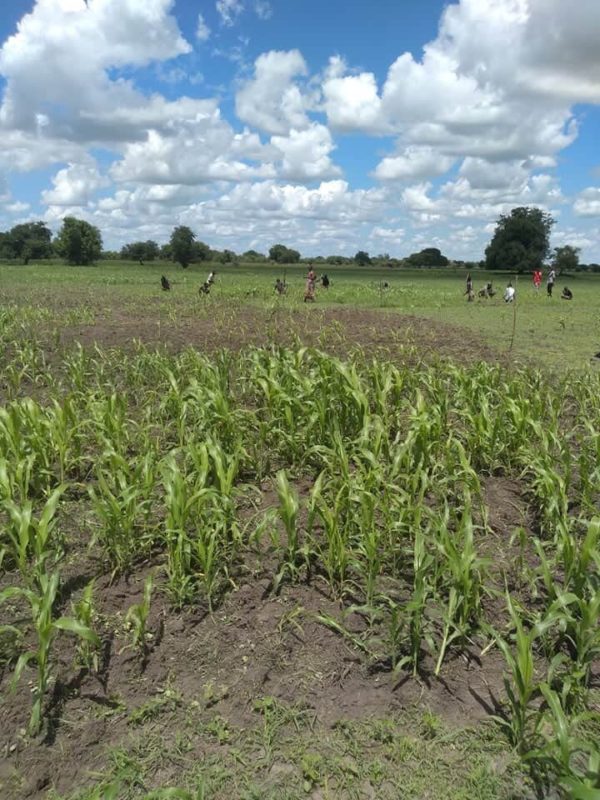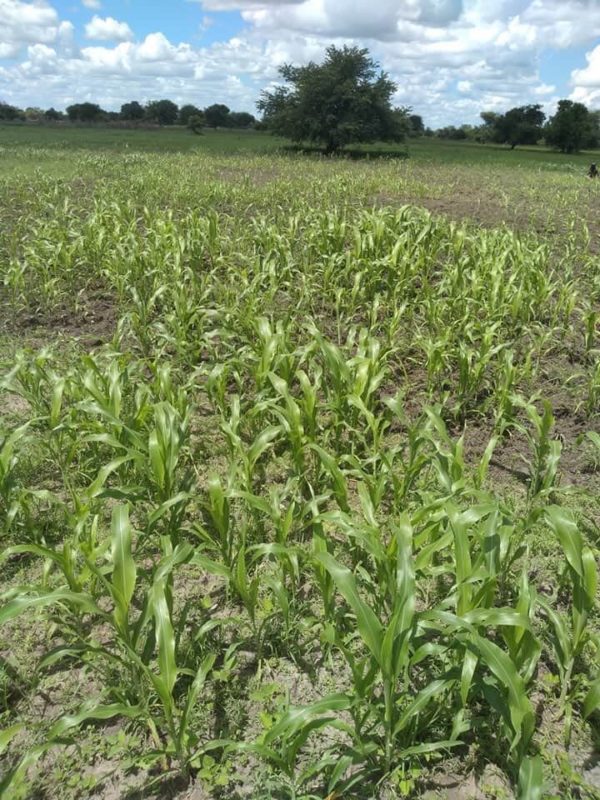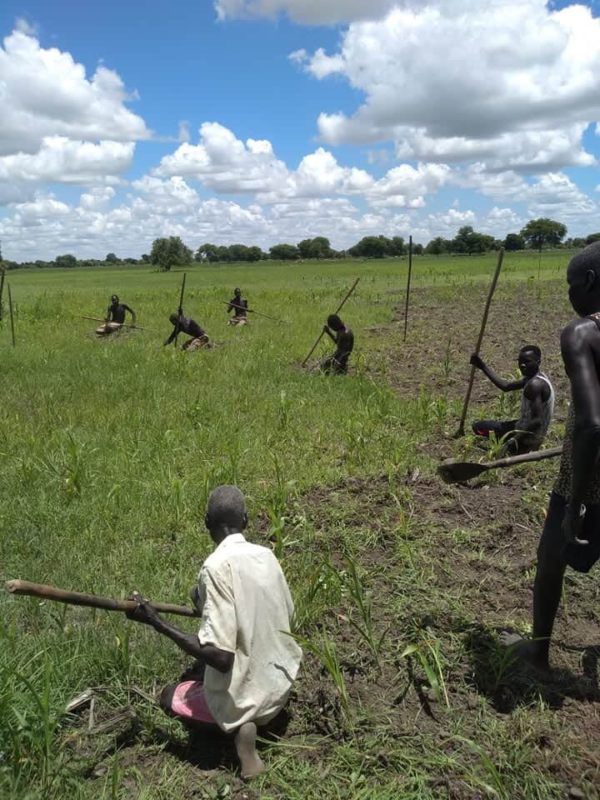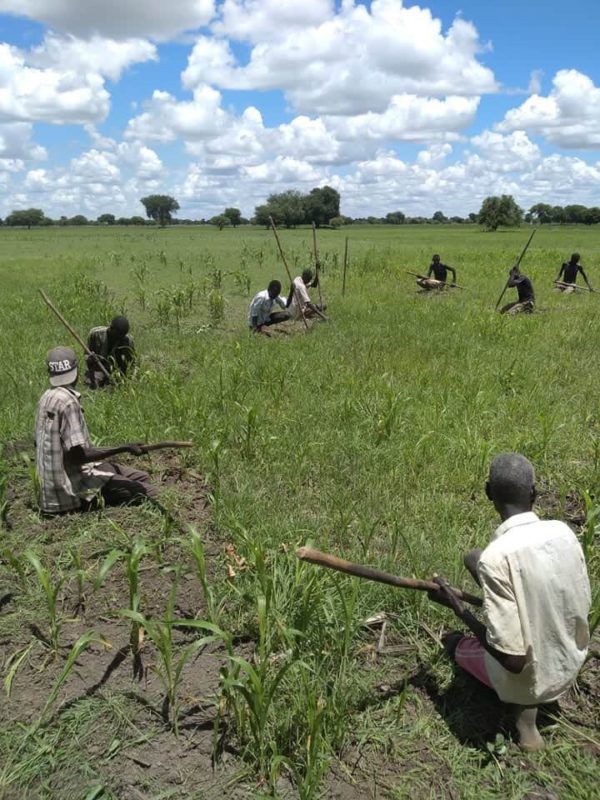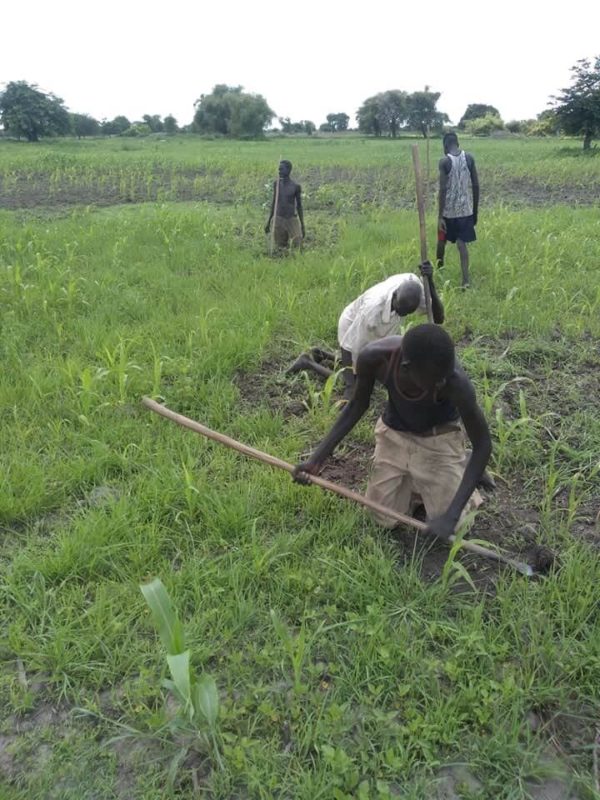by Emmanuel Kondok, photos by Santu Cabella Gum.
Community Farm: Warrual Amuol.
We declare a new war against famine and starvation in South Sudan. The farm is located along the Nyangdeng River in Majak Bel. The land is owned by the Panring Maguil and Akajeeng Yac Ayuel and was granted by my great grandfather to my grandparents in the last century. It has been operating for 3 years now, with great outcomes. On behalf of my parents I would like to thank and appreciate Pan-Yaac Thiangkeer for their generosity in granting these fertile lands.
This plot is very productive land in every season and grows every type of crop. The family of Pan Ring Maguil are hard workers, are always brave fighters, a spiritual group, keepers of the ringyath, and more than anything else, we are farmers. We are always on the front line fighting to bring down starvation and hunger amongst the communities of the region. The produce from this farm is distributed or sometimes lent out to people in need. The general benefit of this farm includes bringing local farmers, cooperatives, farmers’ unions, clients, customers and consumers, farmers’ consultants, the agricultural society together in development. The farm’s attracted partners and stakeholders including researchers from the World Food Program who are ready to educate and fight the current deadly famine and starvation in South Sudan, and particularly in Twic.
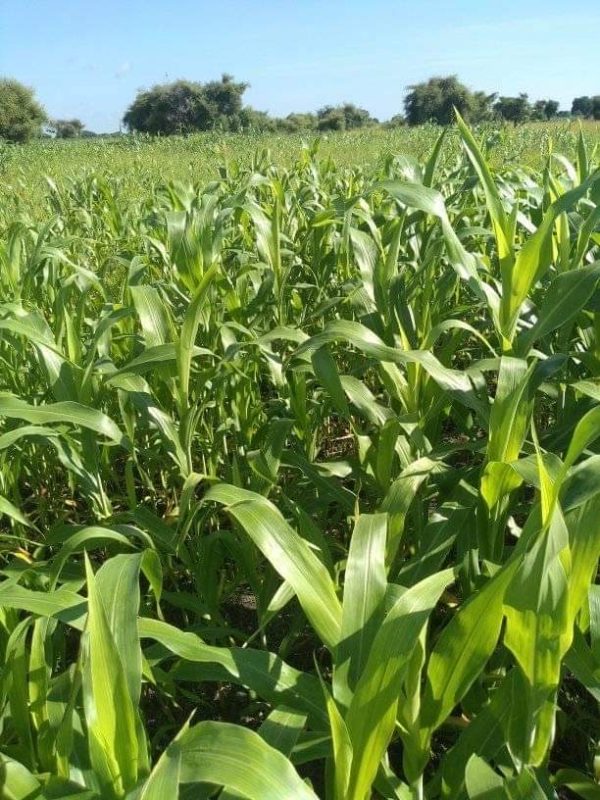
Every rainy season in August to September the World Food Program’s teams, the researchers and assessment team, travel to my farm and village. They sit under the trees in my home state, sometimes they eat together with local people who produce the bumper crops before they finish their research.
The challenges we are facing currently in this farm and around the villages include a lack of agricultural equipment, agricultural tools, tractors, boots, even bootstraps, oxen, ploughs, wheelbarrows, wiring for fences, a lack of rain and water, dams or water storage, water pumps and hoses, water sprinklers, and sometimes a lack of waterproof wear, shades, and a lack of crops and seeds. There’s also a lack of human resources, a lack of funds to fund farmers and workers, and sadly a lack of farming knowledge in what were once farming communities and a farmers’ society, with a lack of farmers’ education and farmers’ professional skills.
All of these are very costly in South Sudan. Hiring a tractor is too expensive, the cost of 1 acre of land is $20000 SSP.
We are appealing on behalf of communities in South Sudan to the Minister of Agriculture of RTGONU and the agricultural committee to support and finance independent agricultural endeavours such as our farm. What can a Minister of Agriculture do to help build the capacity of individual farmers? Do we the farmers even have a Ministry of Agriculture? If a Minister of Agriculture’s assigned, then what is he or she doing to respond to the farmers’ needs and challenges through the seasons?
The Ministry of Agriculture in the country need to work closely with ordinary independent producers and cooperative agricultural societies to resource all these hard working farmers who are capable and have the capacity but have little resources to independently sustain themselves. There is a need for the Minister of Agriculture to fund either grants or loan schemes to farmers so they may be able to employ labourers and farm workers, buy agricultural equipment, like waterparks, fences, wiring and agricultural production materials.
Farmers who are the front line in the war against famine and starvation must be supported nationally, regionally and locally to fully implement farming production. This farm in Majak Bel, Warrual Amuol is not only producing crops, fruit and vegetables, but is also bringing peace amongst the local communities as it is hiring labourers on a paid contract. This allows them to sustain their families and support them. If it wasn’t for a shortage of resources we would be able to implement further production.
The farm is also bringing youth together to work and gain access to a casual employment. This farm is being sponsored by Emmanuel Kondok and his family in Australia and we are encouraging the sustainability and independence of our people. To date we have not taken a single dollar from the Republic of South Sudan, but we are trying our best to bring the families, farmers, communities, and traditional and modern agriculture together. We ask the people of Twic in the Diaspora to explore and join the discussion about this case study. Feel free to ask us if you have any questions on how and what is needed to start a farm in South Sudan, or even how to support your family or village in the Republic of South Sudan.
For anyone who would like to see more photos you will find them on my Facebook page. You can also contact me that way.
Regards,
Emmanuel Kondok
Son of Royal Family of Panring Maguil & Akajeeng Yac

